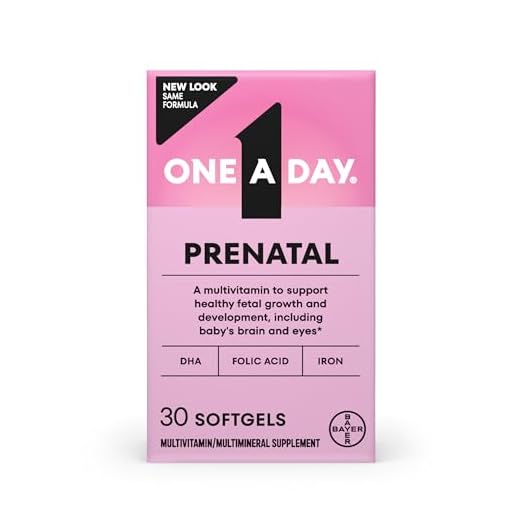







Folic acid can prevent neural tube defects effectively. It's an essential B vitamin extensively researched for this purpose. Taking folic acid is important during pregnancy, especially in the first trimester. Research shows significant benefits in reducing birth defects, including neural tube defects. Along with lowering risks, it supports healthy placental growth and cell production. Consuming folic acid through supplements or folic acid-rich foods like leafy greens and legumes is recommended. It's a simple and proven way to promote a healthy pregnancy. Learn more about its importance for neural tube defect prevention.
Key Takeaways
- Folic acid supplementation reduces risk of neural tube defects significantly.
- Adequate folic acid intake crucial during early pregnancy for prevention.
- Folic acid supports healthy fetal development, crucial for neural tube formation.
- Research shows folic acid lowers chances of birth defects and related complications.
- Consulting healthcare provider for personalized folic acid advice is essential.
Understanding Neural Tube Defects
To understand neural tube defects, examine the early stages of pregnancy when the baby's spine and brain are developing. Spina Bifida awareness is vital in this situation. Spina Bifida is a type of neural tube defect where the spinal cord doesn't develop properly. Genetic predisposition plays a role in the occurrence of neural tube defects, including Spina Bifida. Environmental factors such as a lack of essential nutrients like folic acid during pregnancy can also contribute to the development of these defects. Prevention strategies for neural tube defects, including Spina Bifida, often focus on ensuring that pregnant individuals have an adequate intake of folic acid, either through diet or supplements. It is important to raise awareness about the impact of genetic predisposition and environmental factors on the development of neural tube defects to emphasize the significance of preventive measures like folic acid supplementation. Understanding these factors is essential in the effort to reduce the incidence of neural tube defects.
Importance of Folic Acid
Exploring the role of folic acid in preventing neural tube defects reveals an essential aspect of prenatal care that greatly impacts the development of the baby's spine and brain. Folic acid, an important B vitamin, plays a significant role in pregnancy health by aiding in the formation of the neural tube, which develops into the baby's brain and spinal cord within the first few weeks of pregnancy. Adequate folic acid intake before conception and during early pregnancy is essential as it helps prevent neural tube defects such as spina bifida and anencephaly. Research has shown that women who consume the recommended amount of folic acid daily reduce the risk of these serious birth defects. Additionally, folic acid benefits extend beyond neural tube defect prevention; it also supports the growth and development of the placenta and helps in the production of new cells. Prioritizing folic acid intake through diet or supplements is a simple yet powerful way to promote a healthy pregnancy and reduce the risk of neural tube defects.
Folic Acid and Pregnancy

Folic acid plays an essential role in supporting a healthy pregnancy and preventing neural tube defects by aiding in the formation of the baby's neural tube. Adequate intake of folic acid is vital for pregnancy nutrition as it supports the rapid cell division and growth that occurs during fetal development. Research has shown that folate supplementation before conception and during the early stages of pregnancy can greatly reduce the risk of neural tube defects such as spina bifida and anencephaly.
During pregnancy, the demand for folic acid increases to support the baby's growth and development. It is recommended that women of childbearing age consume 400-800 micrograms of folic acid daily to reduce the risk of neural tube defects. Folate supplementation is particularly important during the first trimester when the neural tube is forming.
Ensuring adequate folic acid intake through diet and supplements is a simple yet effective way to support a healthy pregnancy and reduce the risk of neural tube defects.
Research on Folic Acid Benefits
Research has highlighted the significant benefits of folic acid in supporting healthy pregnancy outcomes and reducing the incidence of neural tube defects. Folic acid research has shown that adequate intake plays a pivotal role in preventing neural tube defects like spina bifida and anencephaly. Studies on the effects of Vitamin B9 have also indicated its importance in reducing the risk of other birth defects such as cleft lip and palate. Moreover, folic acid has been associated with a lower risk of preterm birth and low birth weight. Research suggests that folic acid supplementation before conception and during early pregnancy is essential for ideal outcomes. Additionally, studies have demonstrated that folic acid may have protective effects against heart disease, stroke, and certain types of cancer. These findings underscore the importance of folic acid in promoting overall health, particularly during pregnancy, making it a critical nutrient for women of childbearing age.
Recommended Folic Acid Intake

To guarantee excellent health outcomes, it is essential to grasp the suggested daily intake of folic acid for individuals, especially women of childbearing age. The recommended folic acid dosage for most adults is 400 micrograms per day. However, for pregnant individuals or those planning pregnancy, the requirement increases to 600-800 micrograms daily to support fetal development and prevent neural tube defects. It is important to obtain folic acid from natural food sources like leafy green vegetables (spinach, broccoli), fruits (avocado, oranges), legumes (lentils, chickpeas), and fortified cereals. These sources provide not only folic acid but also other essential nutrients beneficial for overall health. Including a variety of these foods in your daily diet can help meet the recommended intake. Remember that cooking methods can affect the folic acid content in foods, so opt for steaming or consuming raw vegetables to retain the maximum amount of this essential nutrient.
Folic Acid Supplements
Supplementing with folic acid can greatly enhance the overall nutritional intake necessary for ideal health outcomes, particularly in specific demographic groups. Folic acid effectiveness in preventing neural tube defects has been well-documented, especially during the early stages of pregnancy when the neural tube is forming. It is recommended that women of childbearing age, pregnant women, and those planning to conceive take a daily folic acid supplement of 400 to 800 micrograms to reduce the risk of neural tube defects in newborns. Studies have shown that this dosage markedly lowers the incidence of neural tube defects. Additionally, folic acid supplements are also beneficial for individuals with certain medical conditions or those on specific medications that may interfere with the body's ability to absorb or utilize folate effectively. Ensuring an adequate intake of folic acid through supplementation is a simple and effective way to promote overall health and reduce the risk of neural tube defects.
Risk Factors for Neural Tube Defects

Certain factors increase the risk of neural tube defects in newborns, necessitating a closer examination of potential contributors to these developmental abnormalities. Genetic predisposition plays a significant role in the occurrence of neural tube defects. Individuals with a family history of these defects are at a higher risk, emphasizing the importance of understanding the genetic factors at play. Lifestyle factors such as maternal obesity, uncontrolled diabetes, and certain medications can also increase the risk. Environmental influences like exposure to toxins, radiation, and certain chemicals during pregnancy can further elevate the chances of neural tube defects.
Essential measures are vital in mitigating these risks. Ensuring an adequate intake of folic acid before and during pregnancy is one of the most effective ways to reduce the likelihood of neural tube defects. Additionally, maintaining a healthy lifestyle, including a balanced diet, regular exercise, and avoiding harmful substances, can contribute to lowering the risk. By addressing genetic predisposition, lifestyle factors, and environmental influences, individuals can take proactive steps to decrease the incidence of neural tube defects in newborns.
Real-life Success Stories
In real-life scenarios, individuals who diligently adhere to folic acid supplementation recommendations have demonstrated remarkable success in preventing neural tube defects. Personal testimonies and patient experiences provide compelling evidence of the positive outcomes associated with folic acid intake.
Countless success stories emphasize the importance of folic acid in preventing neural tube defects. For instance, Sarah, a mother who diligently took folic acid before and during pregnancy, shared her experience of giving birth to a healthy baby girl without any neural tube defects. Similarly, John, a father-to-be, followed medical advice and incorporated folic acid into his daily routine, leading to the successful prevention of neural tube defects in his child.
These real-life examples showcase the significant impact of folic acid supplementation on neural tube defect prevention. Patient experiences highlight the importance of adhering to medical recommendations regarding folic acid intake, underscoring the essential outcomes that can be achieved through simple yet crucial interventions.
Folic Acid-Rich Foods

Exploring a variety of folic acid-rich foods can greatly enhance your dietary intake of this essential nutrient, promoting overall health and potentially aiding in neural tube defect prevention. Folic acid sources are abundant in various food groups. Leafy greens such as spinach, kale, and collard greens are excellent sources of folic acid. Legumes like lentils, chickpeas, and black beans also provide a significant amount of this essential vitamin. Additionally, citrus fruits, avocados, and bananas are rich in folic acid, offering a delightful way to boost your intake.
Incorporating these folic acid sources into your diet can have numerous benefits. Folic acid plays an important role in DNA synthesis and repair, making it essential for cell division and growth. Adequate folic acid intake is particularly important during pregnancy to prevent neural tube defects in the developing fetus. Moreover, folic acid is known to support heart health by helping to lower homocysteine levels in the blood. By including folic acid-rich foods in your meals, you can enjoy both the taste and the health benefits they provide.
Consulting Your Healthcare Provider
To guarantee high-quality care and guidance regarding folic acid intake and its potential benefits, consulting your healthcare provider is essential. Your healthcare provider can offer personalized advice based on your medical history, lifestyle, and specific needs. They can assess your risk factors for neural tube defects and determine the appropriate folic acid supplementation for you.
Genetic counseling may also be recommended by your healthcare provider to evaluate your genetic predisposition to neural tube defects. This counseling can provide valuable information about the risks and potential preventive measures that may be beneficial in your case.
Furthermore, prenatal screening is another important aspect that your healthcare provider can discuss with you. Prenatal screening tests can help identify any potential issues early on in your pregnancy, allowing for timely interventions if needed.






